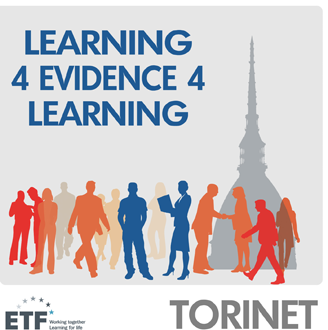
This Eurobarometer survey sets out to gauge the opinion of European citizens about vocational education and training in 2011 to help inform the work of the European Commission and Member States as they begin to implement the new VET strategy.
It sets out to assess the image of vocational education and training, and people’s impression of VET’s potential benefits within the EU. It evaluates the impact of VET on society and on the economy, and looks at the factors that influence young people as they choose between VET and other forms of education. 26,840 European citizens aged 15 and above were interviewed across all the Member States.
Attitudes towards vocational education and training - Full report.
Attitudes towards vocational education and training - Summary.
Press Release.
CONCLUSION The European Union is seeking to modernise vocational education and training in order to help young people into work and give adults the chance to build upon their existing skills, and the findings of this report provide a useful guide that should inform this undertaking.
First, it is encouraging to observe that there is generally no kind of stigma attached to vocational training as an alternative to academic studies, with 71% of all European respondents saying that VET has a positive image in their country. However, the significant difference between the image of VET in different Member States – only 50% of people in both the Netherlands and Slovenia, for example, say that VET is viewed positively – highlights the fact that making VET a universally attractive option within the next decade will be more challenging in some countries than in others.
Many of the metrics in this report suggest that some of the important messages about VET – that it teaches skills that employers require, that it offers high-quality learning – have already got through to most parts of European society. But in some cases, there is a lack of confidence in VET in certain geographies: in Lithuania and Latvia, for example, only 61% and 63% of people respectively (far lower than the EU average) regard VET as offering high-quality learning. In Lithuania, uniquely among the 27 EU countries, more people also say that having a VET qualification actually makes a person less likely to find a job than someone who has completed their general secondary or higher education, suggesting specific issues in that country either with the information that the public receives about VET or structural problems within the VET system itself.
In other cases, there is a lack of confidence in VET in certain socio-demographic groups. For example, people who see themselves as being low down on the social scale have less belief that VET can improve their job prospects than people higher up the scale. This represents a major challenge: one of the EU’s main objectives is to open up opportunities to disadvantaged groups, but these results show that these very groups, which have the lowest aspirations in general, have the least faith in the ability of vocational training to change and improve their circumstances. Informing and educating these underprivileged groups about the potential that VET can unlock is therefore an obvious priority.
With VET’s ability to guide and influence society in line with the EU’s wider policy goals in mind, it is disconcerting to find that less than a half (48%) of all respondents think VET encourages environmentally friendly attitudes, with 30% saying it fails to do this. At least one-third of respondents agree that VET does not promote environmentally friendly attitudes in 11 countries. This outcome poses a challenge for VET’s potential in supporting the green agenda and in assisting Europe’s transition to a low-carbon economy.
VET’s ability to boost the economy by stimulating the creation of small companies is also less proven, with around half of all respondents saying that VET does not stimulate small companies (only 36% of people think that it does). This is a disappointing result in the context of the slow economic growth that most of Europe is currently experiencing. Also somewhat mixed are the findings on VET’s capacity to improve the geographical mobility of students by enabling VET learners to study in another country. Though 43% of people think that VET does give people this opportunity, 35% do not think it enables them to study abroad. While it is encouraging to see that a relative majority regard VET as a route to educational mobility, more work is clearly needed to ensure that an absolute majority comes to view it in this positive light.
Europeans are slightly more positive when it comes to the possibility of practising a vocational occupation abroad, with 49% of respondents thinking that it is easy for people who received VET to practise their profession in another EU Member State (and 32% finding it difficult).
The fact that students selecting vocational education and training take much the same factors into consideration as students selecting general secondary or higher education suggests that there is no great social divide separating the young people who choose the two different educational pathways. The struggle may instead be to reach those parts of society which do not seriously consider taking either educational route. A fifth (21%) of all EU respondents currently believe that VET does not offer good career opportunities, and this is one of the key statistics that the EU initiative needs to improve by 2020, both through enhancements in the VET system and through the education of young people and of the adult workforce. Unlike purely academic studies, vocational courses are very much tied to careers and job prospects, and as such the 21% of European society who currently do not see VET as a route to a good career have no reason to take VET themselves or advise others to do so.
 How does the accreditation of training providers improve the quality of vocational education and training (VET)?
How does the accreditation of training providers improve the quality of vocational education and training (VET)?








/https%3A%2F%2Fprofilepics.canalblog.com%2Fprofilepics%2F1%2F0%2F1076071.jpg)